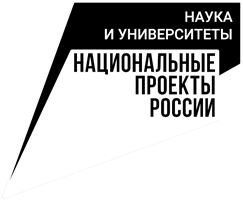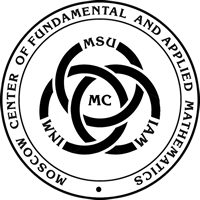On April 7, 2021, at 18.30, a joint meeting of the seminar "Time, Chaos and Mathematical Problems" and the Moscow Center of Fundamental and Applied Mathematics will take place in a online format.
| Leader: |
academician of the Russian Academy of Sciences, Professor V. A. SADOVNICHY |
18:30
Mathematical modeling of the dynamics of the Earth system
| Corresponding Member RAS V.N. Lykosov | |
| Doctor of Physical and Mathematical Sciences A.S. Gritsun | |
| Doctor of Physical and Mathematical Sciences A.V. Glazunov | |
| Doctor of Physical and Mathematical Sciences V.M. Stepanenko | |
| Doctor of Physical and Mathematical Sciences E.M. Volodin | |
| Ph.D. E.V. Mortikov |
Annotation
According to the generally accepted definition, the Earth system (ES) includes the atmosphere, the ocean, the upper layer of land, the cryosphere, the biosphere, and determines the human environment. Forecasting the evolution of this system is a "super task for supercomputers", the practical importance of which can hardly be overestimated. The dynamics of the components of the ES is described on the basis of the equations of thermohydrodynamics, which constitutes the internal mathematical unity of the models of the ES. The report presents the foundations of modern computational technologies for modeling ES, developed jointly at the G.I. Marchuk Institute of Computational Mathematics of the RAS and Moscow State University. Particular attention is paid to the formulation of tasks for assessing future climate changes, detailed modeling of the boundary layer of the atmosphere and the active layer of the land; the last two layers constitute the "energy focus" of the Earth system and at the same time the area of functioning of the sociosphere and economy. Numerical methods for realizing the equations of the atmosphere and ocean dynamics, their mapping to the architecture of modern and promising supercomputers, a number of fundamental results obtained by the team in the field of geophysical hydrodynamics and climate dynamics are considered. The report shows the current challenges of climate science, the possibilities and prospects of using both the traditional mathematical apparatus and machine learning for solving urgent problems of predictive modeling. Great importance is attached to the integration of educational and research processes for the education of new scientific personnel, incl. within the framework of the Moscow Center of Fundamental and Applied Mathematics, as well as scientific schools of Moscow State University.
The publicly available online broadcast of the meeting will take place on the website https://expert.msu.ru

